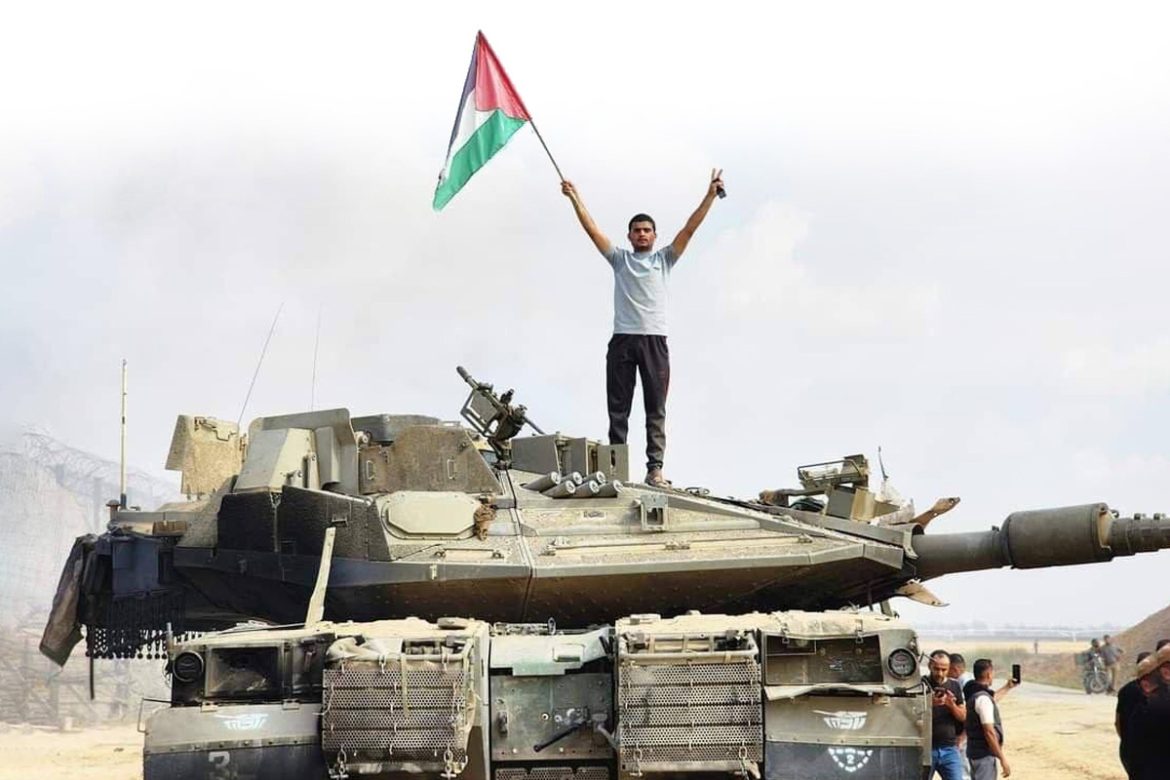After the successful Hamas resistance force’s armed action in the occupied Palestinian lands on October 7th, 2023, which was seen as a legitimate conflict to reclaim the occupied lands, the Israeli army responded to this surprising attack by initiating armed actions in the Gaza Strip. This response goes against international law and the law of armed conflicts.
In fact, Israel has committed international collective crimes. It is for this reason that we say collective crimes because they have committed several crimes such as genocide, crimes against humanity, and war crimes at the same time to put pressure on them and the Israelis have killed more than eight thousand civilians in the Gaza Strip.
Therefore, this article intends to introduce (present) the combined crimes committed in the Gaza Strip by the Israelis in a limited section of international law standards.
Therefore, according to the documents of the International Criminal Court (Rome 1998), which compile definitions and examples of crimes under humanitarian law, the above issue will be explained.
Based on this article, we will write down the articles related to the mentioned crimes along with examples of their occurrence.
1- The crime of genocide:
Article 6 of the Statute of the International Criminal Court
Part B) The issue of severe physical or mental health damage to group members. (The killing of over 8,000 civilians and the serious injury of more than 20,000 people)
Section c) Intentionally subjecting a group to an unsuitable living environment that results in the decline of their physical abilities, either overall or in specific areas. (Including withholding access to food, water, electricity, and fuel for civilian residential areas and hospitals, as well as depriving them of essential medical equipment)
2- Crime against humanity
Article 7 of the Statute of the International Criminal Court
Part A) Deliberate homicide (resulting in the deaths of more than 8,000 civilians)
Part B) Forced displacement (in addition to the thousands of people killed, targeting, and killing over 800 civilian families)
Part C) Deportation or forced migration of a population (deliberately subjecting the people of Gaza to severe bombardment, cutting off access to water, electricity, fuel, and medical services, and publicly announcing that the Palestinians have to leave Gaza and relocate to other countries)
Part D) Racial Discrimination: The explicit and direct statement by the Israeli Minister of Defense that the people of Gaza are animals and should be killed as such, as well as other Israeli citizens and officials, and the fact that Israelis are actually killing children and families on a large scale.
3-War crime:
Article 8 of the Statute of the International Criminal Court
Part A) Serious violation of the Geneva Conventions of August 12, 1949:
1- Intentional killing (killing more than 8,000 civilians in residential buildings)
An interesting point is that the Israeli criminal regime experienced a comprehensive failure in this armed conflict as a result of its own actions. In fact, they suffered not only intelligence and military failures but also legal and moral failures.
2- Illegal and arbitrary destruction and confiscation of property that is not justified by military necessity, such as bombing a large area of non-military residential houses and hospitals with a heavy volume of explosives estimated to be the size of the Hiroshima nuclear bomb.
Part B) Other serious violations of the established rules and customs of international law regulating international armed conflicts, such as any of the following actions:
1- Deliberately targeting civilians in general or those not directly involved in the conflict. (Resulting in the deaths and injuries of numerous children, civilian men and women, and journalists in the Gaza Strip)
2- Deliberately targeting civilian infrastructure (resulting in severe bombing and destruction of settlements, towers, residential houses, hospitals, news agencies, etc.)
3-Attacking or bombing defenseless cities, villages, or residential buildings that are not military targets is prohibited. This includes the use of unjustifiable military bombs such as white phosphorus or those causing high-level injuries and burns, leading to unnecessary pain.
4- Deliberately targeting religious, educational, artistic, scientific, or charitable buildings and historical monuments, as well as hospitals and gathering places for the sick and wounded, as long as they are not military targets. (Intentional bombing and destruction of mosques, schools, stores, hospitals, etc.)
5- Intentionally targeting buildings, equipment, personnel, and medical vehicles displaying the emblem of the Geneva Conventions in violation of international law. (An evident instance is the assault on Al-Ahli Mohamedani Hospital, which bore the Red Crescent or Red Cross symbol, and the medical staff and personnel working there)
The use of starvation as a tactic of war, by withholding essential resources from civilians and blocking relief aid, is a violation of the Geneva Conventions. In the case of Gaza, this includes imposing a harsh siege that denies access to water, electricity, and fuel – all crucial for preparing food and providing basic healthcare to those under siege. Additionally, over 20,000 wounded Palestinians in Gaza are being denied access to necessary medical and welfare supplies.
Based on the articles of the International Criminal Court and the examples provided, it is noted that the Israeli Zionist regime has engaged in international combined criminal crimes.
There is an important point, and that is that Israel has not ratified the statute of the International Criminal Court, so how can it be condemned for the mentioned crimes?
The important point is that Israel has not ratified the International Criminal Court’s statute, so how can it be condemned for the mentioned crimes?
In response, it should be noted that Israel can be condemned for the aforementioned crimes in various ways, one of the most important of which is customary international law. The rules of the International Criminal Court, observed in a customary and humanitarian way between many countries, such as the set of four conventions of Geneva on August 12, 1949, and similar cases such as international criminal courts in Tokyo (1946) and Nuremberg (1945), as well as the courts of the former Yugoslavia (1991) and Rwanda (1994), confirm its universal structure, leading to the evolution of international customs and mandatory rules regarding the law of armed conflicts, valid for all governments, after the International Criminal Court’s statute was drafted and adopted by 122 countries in 1998.
Based on this, the Israeli Zionist regime is condemned for the collective crimes of genocide, crimes against humanity, and war crimes in the Gaza Strip of occupied Palestine, whether it faces trial or not.
An interesting point is that the Israeli criminal regime experienced a comprehensive failure in this armed conflict as a result of its own actions. In fact, they suffered not only intelligence and military failures but also legal and moral failures.
This highlights the cultural poverty of the Zionist regime occupying Quds-e Sharif.
By: Special Correspondent
View this article in Echo of Islam 287





